
World Knowledge Forum 2020: Interview of Professor Dongchul Cho and Students
- Date 2020-10-06 04:31
- CategoryNews
- Hit3324
This year marks the 21st anniversary of the World Knowledge Forum (WKF), with the theme “Pandenomics Perspective: Shaping New Global Symbiosis,” held from 16 to 18 September 2020. This prestigious and honored platform is for knowledge-sharing purposes and for supporting balanced economic growth and prosperity throughout the world.
The World Knowledge Forum (WKF) was established In October 2000, after the 1997 Asian financial crisis, with the aim to transform Korea into a knowledge-driven nation.
Respectable public figures and key persons such as Theresa May, the 76th Prime Minister of the UK; Enrico Letta, the 55th Prime Minister of Italy; Prof Klaus Schwab, Executive Chairman of the World Economic Forum; lan Wolff, Deputy Director-General at WTO; George Friedman, Founder and Chairman of Geopolitical Futures; and Daron Acemoglu, author of ‘Why Nations Fail’ and a professor at MIT attended this 21st prestigious forum.
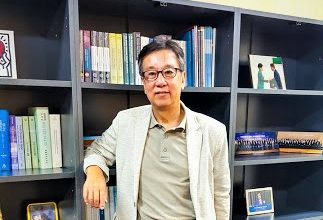 It was an honor of the Korea Development Institute (KDI) School of Public Policy and Management that Professor Dongchul Cho was invited to be one of the speakers to WKF. Dr. Cho joined KDI School of Public Policy and Management in 2006, possessing a strong and dynamic economics and finance background. He has been in charge of various prominent posts throughout the years, including Chief Economist and Head of Macroeconomic and Financial Policy Department at KDI and Vice President of KDI, in which he led the Department of Macroeconomic and Financial Polices. Here is what he has to say about WKF:
It was an honor of the Korea Development Institute (KDI) School of Public Policy and Management that Professor Dongchul Cho was invited to be one of the speakers to WKF. Dr. Cho joined KDI School of Public Policy and Management in 2006, possessing a strong and dynamic economics and finance background. He has been in charge of various prominent posts throughout the years, including Chief Economist and Head of Macroeconomic and Financial Policy Department at KDI and Vice President of KDI, in which he led the Department of Macroeconomic and Financial Polices. Here is what he has to say about WKF:
1. We would like to congratulate you on being invited to be one of the speakers at this prestigious forum. What was your personal and kind experience of being a speaker in WKF?
Personally, I am honored to have been invited and to have had the opportunity to spend time with scholars and key persons from around the world. However, from the macroeconomics perspective, it was a bit embarrassing, as we are currently facing an unprecedented pandemic recession, not a recession driven by an economic factor.
2. The topic given to you was 2021 Global Economic Outlook. Could please share with us what your key takeaways were during the session?
The pandemic has affected the global environments in a way that we have never experienced before. I raised three core questions about the global economic outlook during the session. The first question was whether the global economy has yet passed the bottom. I believe it is possible that we will encounter a second or third wave of the pandemic. Nevertheless, the macroeconomic impact of a second or third wave would likely to be smaller than what we are facing now, since no one knew how to cope with the pandemic when it first hit us. As the pandemic prolongs, however, society can eventually manage to adapt with the crisis.
The second question concerned how quick the recovery would be. I believe it will be moderate, as the pandemic will not extinguish soon enough. Although vaccines are expected to be available this year, it may take some time before the pre-crisis health condition is fully restored.
The third question was whether the pre-crisis trajectory of the GDP can be restored once the crisis is over. Economic literature, especially empirical literature, provides a kind of negative answer. Based on previous economies that have experienced a full-scale crisis, such as the Latin American debt crisis in the 1980s, the Asian economic crisis in the 1990s, and the global financial crisis in 2008, the economies did not fully recover the pre-crisis trajectory of growth.
3. For your kind information, 15 KDI School students have been granted the opportunity to experience and observe the WKF discussions. What is your advice for us to be globally competent students?
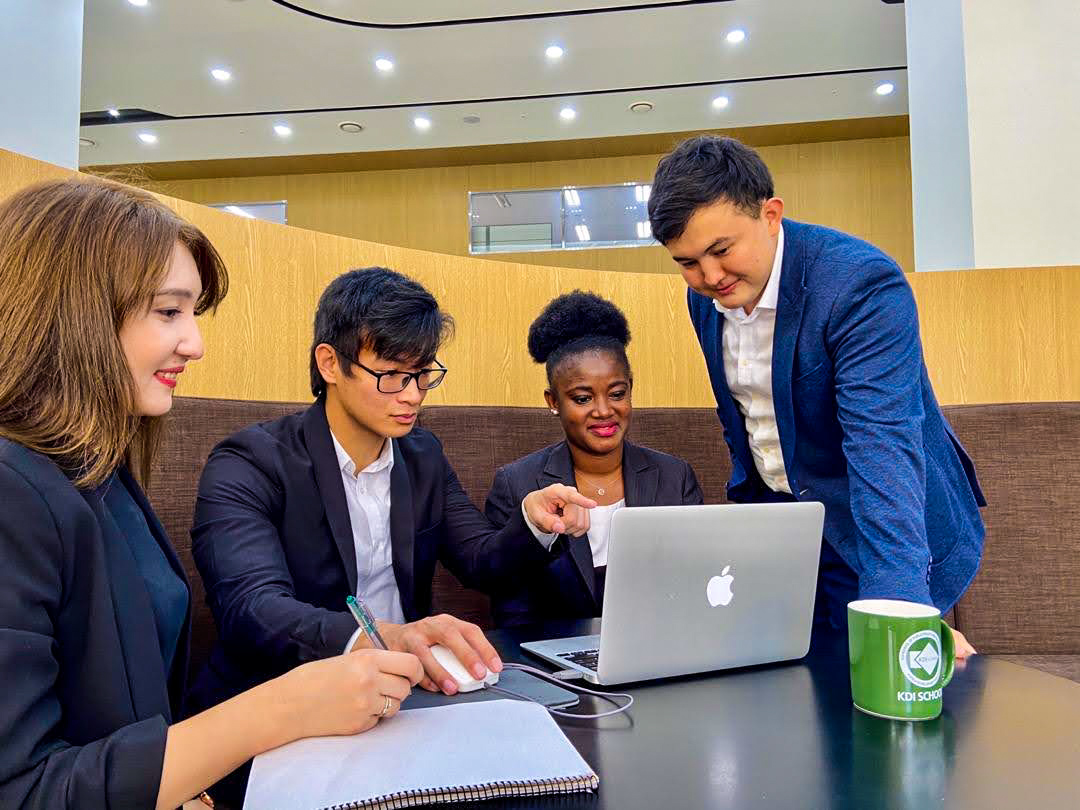
Students are encouraged to think critically about the messages delivered by the speakers. Do not be intimidated by the names of the speakers. Do not take for granted the views and insights of the speakers. Critical thinking can improve the quality and value of a student.
On a separate note, thanks to Professor Young Chul Kang’s initiatives, 15 KDI students have had the opportunity to experience and observe the discussion among the scholars in this forum. Professor Kang is one of the founding members of the WKF. He was in charge of the first inaugural forum and served as the Managing Director of the forum for the first three years. Four KDI students were invited to the KDI School News Center section to share their experiences, namely Altynai Akmatova (MDP), Janet Nyanda Ganu (MDP), Mico Tiu (MDP), and Ayan Tazhibay (MPP). The following are their brief perspectives and views about what was deliberately discussed during the forum:
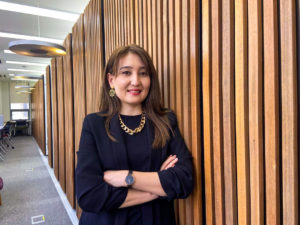 Altynai: We are currently experiencing a massive transformation. As former United Nations (UN) Secretary-General Mr. Ban Ki-moon pointed out, “we face a gap between government global cooperation solidarity, lack of leadership, so we need to united, it is everybody’s responsibility." The world needs cooperation between global leaders, businesses, and society. Since Covid-19, it appears that we are facing negative global macroeconomic environments. To be honest, from my perspective, the economic environment has hit us worse than the pandemic itself. Many people throughout the world have lost their jobs, or their incomes have been deducted due to this pandemic. The increase in the unemployment rate has has negative impacts on countries'' economies worldwide. Joining the forum and observing what experts had to say gave me a broader perspective of how global leaders should work together. The world changes people; we cannot stop it. So, we must adapt and make a contribution to achieve peace on our planet.
Altynai: We are currently experiencing a massive transformation. As former United Nations (UN) Secretary-General Mr. Ban Ki-moon pointed out, “we face a gap between government global cooperation solidarity, lack of leadership, so we need to united, it is everybody’s responsibility." The world needs cooperation between global leaders, businesses, and society. Since Covid-19, it appears that we are facing negative global macroeconomic environments. To be honest, from my perspective, the economic environment has hit us worse than the pandemic itself. Many people throughout the world have lost their jobs, or their incomes have been deducted due to this pandemic. The increase in the unemployment rate has has negative impacts on countries'' economies worldwide. Joining the forum and observing what experts had to say gave me a broader perspective of how global leaders should work together. The world changes people; we cannot stop it. So, we must adapt and make a contribution to achieve peace on our planet.
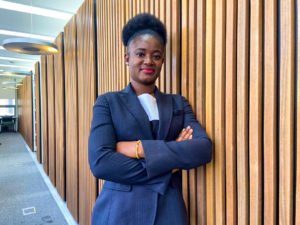 Janet: What really captivates me is the issue of the challenges and opportunities in this volatile world. It does not matter how the world encounters challenges. What is important is how we look at those challenges and turn them into opportunities and help one another. The Earth is the only livable planet for humanity. It is how global challenges are faced, such as the change of demographics, automation and the changing nature of work, and the retrenchment of democracy, that could be transformed into opportunities for developing dynamic and economic inclusiveness for the 21st century.
Janet: What really captivates me is the issue of the challenges and opportunities in this volatile world. It does not matter how the world encounters challenges. What is important is how we look at those challenges and turn them into opportunities and help one another. The Earth is the only livable planet for humanity. It is how global challenges are faced, such as the change of demographics, automation and the changing nature of work, and the retrenchment of democracy, that could be transformed into opportunities for developing dynamic and economic inclusiveness for the 21st century.
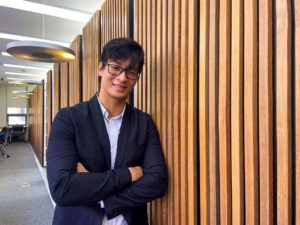 Mico: Most of the issues discussed at the forum concern technological advancements and global community. One example is the benefits of artificial intelligence (AI). As far as I am aware, AI has become part of our needs in this digital society. For instance, when we enter our homes, Google can help to turn on our lights, while Alexa can help to start our vehicles in the morning.
Mico: Most of the issues discussed at the forum concern technological advancements and global community. One example is the benefits of artificial intelligence (AI). As far as I am aware, AI has become part of our needs in this digital society. For instance, when we enter our homes, Google can help to turn on our lights, while Alexa can help to start our vehicles in the morning.
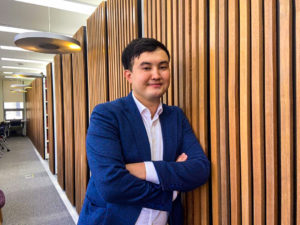 Ayan: It was a great pleasure to witness these public figures sharing their thoughts and views, especially when discussing global issues such as Covid-19 and the 4th Industrial Revolution, the impact of Artificial Intelligence on Work and Organizations, and the Future of Mobility. As we are facing global challenges such as pandemics, climate change, and wealth inequality, I believe that technology has better opportunities to shape our future. Enhancing technological innovation could help the global community to become more flourishing, sustainable, and reasonable.
Ayan: It was a great pleasure to witness these public figures sharing their thoughts and views, especially when discussing global issues such as Covid-19 and the 4th Industrial Revolution, the impact of Artificial Intelligence on Work and Organizations, and the Future of Mobility. As we are facing global challenges such as pandemics, climate change, and wealth inequality, I believe that technology has better opportunities to shape our future. Enhancing technological innovation could help the global community to become more flourishing, sustainable, and reasonable.
Related News
-
Research and Education7 days ago
Republic of Korea Economic Bulletin, May 2024#KDI #Economic #KDISCHOOL #kdischool #Economic Bulletin #Research
-
Research and Education35 days ago
Republic of Korea Economic Bulletin, April 2024#KDI #Economic #KDISCHOOL #kdischool #Economic Bulletin #Research
-
Research and Education63 days ago
Republic of Korea Economic Bulletin, March 2024#KDI #Economic #KDISCHOOL #kdischool #Economic Bulletin #Research
